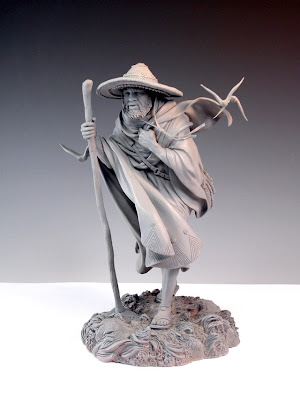

The degeneration of “earthly glory” is presented as inevitable in the poem, contrasting with the theme of salvation through faith in God. In this respect, the poem displays some of the characteristics of Old English wisdom poetry.

However, the speaker reflects upon life while spending years in exile, and to some extent has gone beyond his personal sorrow. Other readings accept the general statement that the exile does come to understand human history, his own included, in philosophical terms, but would point out that the poem has elements in common with " The Battle of Maldon", a poem about a battle in which an Anglo-Saxon troop was defeated by Viking invaders.
#Wildermyth the wise wanderer full#
Some readings of the poem see the wanderer as progressing through three phases first as the ānhaga (solitary man) who dwells on the deaths of other warriors and the funeral of his lord, then as the mōdcearig man (man sorrowful of heart) who meditates on past hardships and on the fact that mass killings have been innumerable in history, and finally as the snottor on mōde (man wise in mind) who has come to understand that life is full of hardships, impermanence, and suffering, and that stability only resides with God. Yet fate ( wyrd) turned against him when he lost his lord, kinsmen and comrades in battle-they were defending their homeland against an attack-and he was driven into exile. He remembers the days when, as a young man, he served his lord, feasted together with comrades, and received precious gifts from the lord. The warrior is identified as eardstapa (line 6a), usually translated as "wanderer" (from eard meaning "earth" or "land", and steppan, meaning "to step" ), who roams the cold seas and walks "paths of exile" ( wræclastas). The Wanderer conveys the meditations of a solitary exile on his past happiness as a member of his lord's band of retainers, his present hardships and the values of forbearance and faith in the heavenly Lord. It is considered an example of an Anglo-Saxon elegy. Each caesura is indicated in the manuscript by a subtle increase in character spacing and with full stops, but modern print editions render them in a more obvious fashion. Īs is typical of Old English verse, the metre of the poem is alliterative and consists of four-stress lines, divided between the second and third stresses by a caesura. The inclusion of a number of Norse-influenced words, such as the compound hrimceald (ice-cold, from the Old Norse word hrimkaldr), and some unusual spelling forms, has encouraged others to date the poem to the late 9th or early 10th century. The date of the poem is impossible to determine, but scholarly consensus considers it to be older than the Exeter Book itself, which dates from the late 10th century. As is often the case with Anglo-Saxon verse, the composer and compiler are anonymous, and within the manuscript the poem is untitled.

It comprises 115 lines of alliterative verse. The Wanderer is an Old English poem preserved only in an anthology known as the Exeter Book, a manuscript dating from the late 10th century. The narrator of the "wise man"'s speech, and the "wise man", presumably the "Wanderer" himself.


 0 kommentar(er)
0 kommentar(er)
